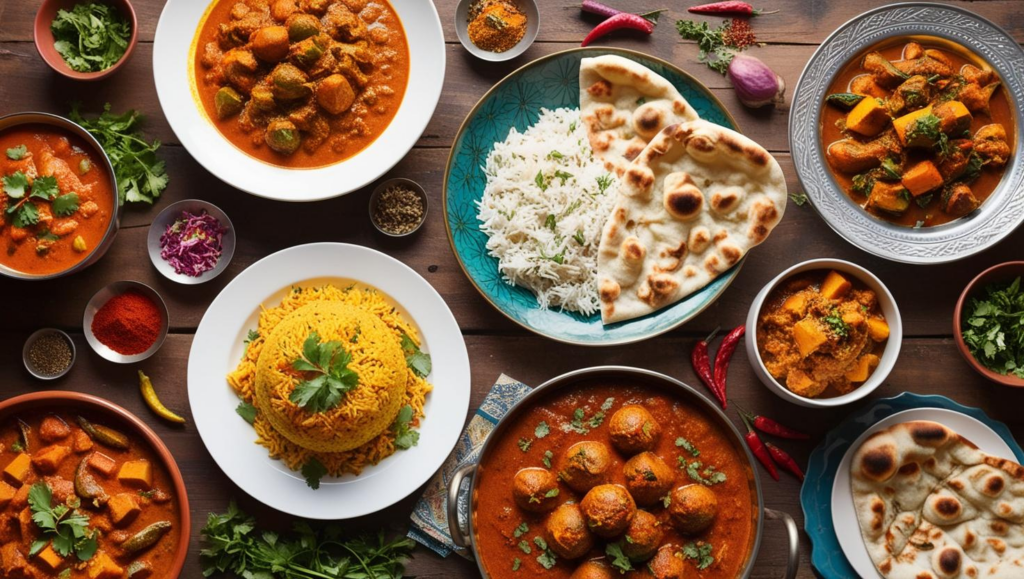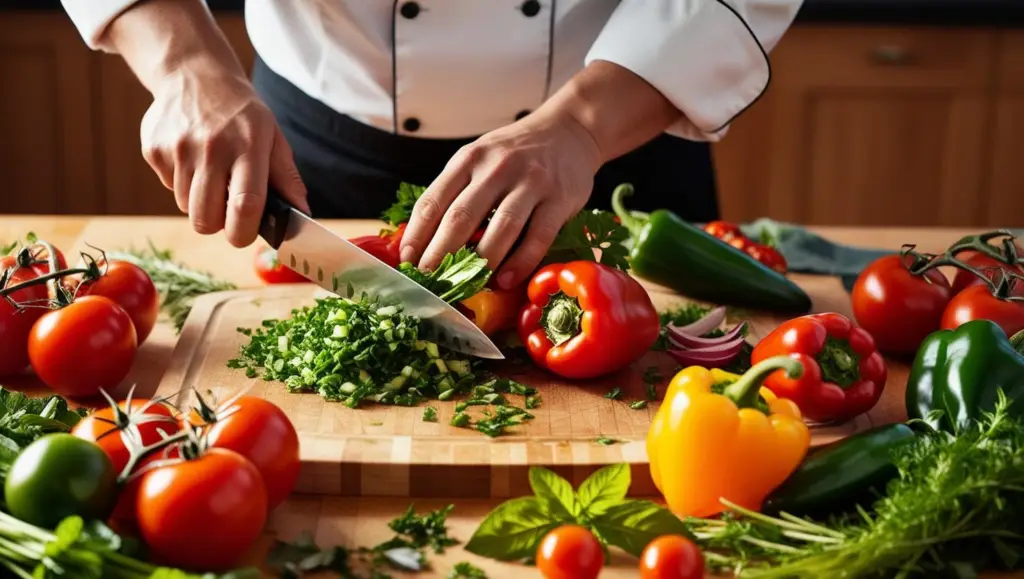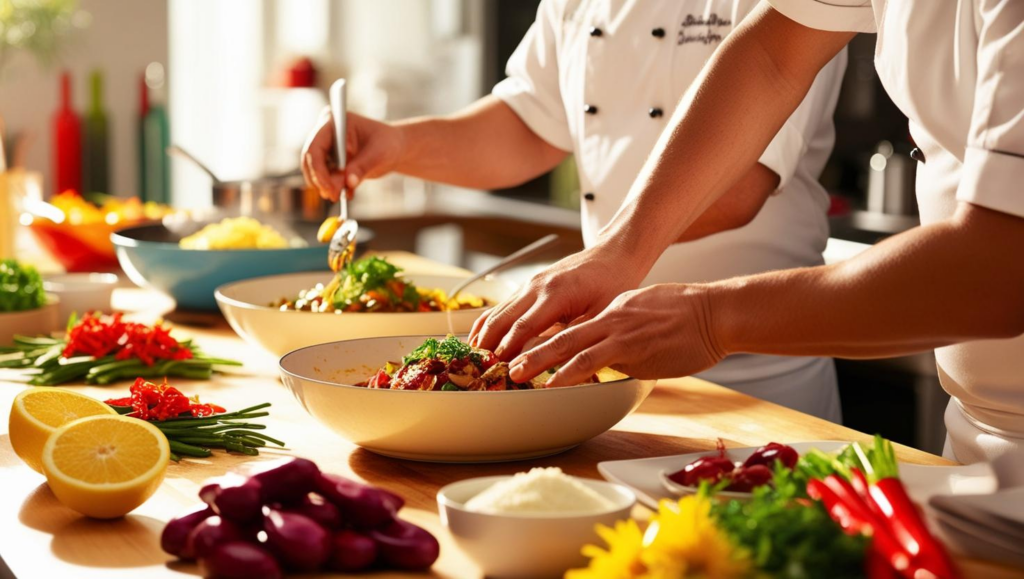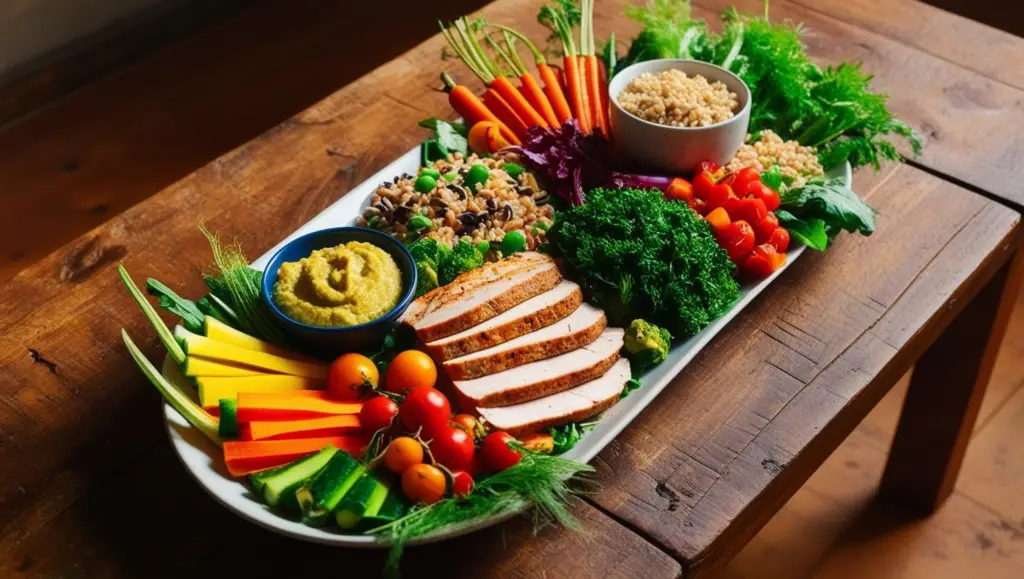Among the most satisfying life skills you may acquire is cooking. It enables you to be creative in the kitchen as well as eat better and save money. Still, even seasoned home cooks can develop poor habits that cause underwhelming dishes, irritation or food waste.
The silver lining is that most usual cooking tips errors are simple to correct once you have knowledge of them. The right cooking tips advice will transform your kitchen screwups into fantastic successes, whether you are a novice or want to level up.

Stop Overcooking Your Food: Learn the expert cooking tips
Overcooking food is among the most often seen kitchen errorsand it’s robbing you nutrient, texture, and flavor. Overcooking turns even the finest ingredients something tasteless and uninteresting—rubbery chicken, soft vegetables, dry pasta. Good news, a few professional cooking tips ideas could suddenly increase your cooking level. Begin with meats and a thermometer; this removes the need of guesswork and guarantees moist, ideally prepared proteins every time. As far as vegetables go, remember that less are better. A brief steam or sauté helps them to keep their color, crunch, and nutritional content.
One should always prepare pasta al dente—much to bite—not limp. Remember too to allow your meal rest and to rest your food. Resting meat after cooking helps to seal in juices and improve taste. Timing is also everything—set timers, trust them, and don’t walk away from the stove. The key to being a more confident and competent home cook is appreciating when food is only finished, not overdone. Once you have mastered these basic habits, every dish you produce will be vibrant, soft, and rich with taste.

The cooking tips guidance needed to correct some of the most frequent cooking errors people make is included here.
1.Always cook on high heat
Many house chefs think that more heat indicates faster or better cooking. Blast everything on high; please note that it can lead to undercooked insides, burned exteriors, and uneven cooking.
Cookery Hint: Find out the perfect temperature for different activities. Sauté on mediumhigh heat, simmer on low heat, and sear or boil water using only high heat. Proper temperature control and a decently nonstick or stainless steel pan really help.
Not preheating your frying pan Dumping food into a cool pan will yield vegetables or stinky meat. Preheating helps food to sear or have a good texture. Rottes cook uniformly.
Cooking pointer: Always let your pan warm up for several minutes before adding ingredients or oil. Sprinkle a few drops of water on the pan; if they sizzle and evaporate quickly, it is ready. This lets you check the temperature.
2. Skipping the Mise en Place.
The French term “mise en place” means “everything in its place” and refers to the custom of arranging and preparing ingredients before beginning cooking.
Cooking Suggestion:Chop all your vegetables, estimate your seasonings, and gather your equipment before activating the stove. Especially useful for sophisticated dishes, this little routine helps you to avoid overcooking, missing ingredients, and panic.
3.Filling the pan too much
In one pan, trying to cook too much at once can lower the heat and steam food rather than searing it. The outcome is a flavorless, lumpy, partially cooked meal. When you toast nuts, let them cool before using so they do not burn too fast.If need be, cook in batches. Give enough of room between meat or vegetables for good browning. Browning is flavor!
4.Not testing as you prepare
Waiting until the very end of cooking to try your food usually means it is too last to correct seasoning mistakes. Normally, a few tiny changes are all that separates a dull meal from a delightful one.
Let’s treat this as a cooking hint.Especially after new additions, taste as you proceed. Slowly change seasoning with salt, acid (e.g., lemon juice or vinegar), and herbs. The small cooking tips advice will have a big impact.
5. Too much or too little seasoning.
Many people either don’t add enough salt or go overboard together in seasoning. Underseasoned meals are flavorless; overseasoned food may be unpalatable.
cooking tips: salt in layers. Add a small amount before serving, a bit more with tomatoes, and a third when the onions are cooked. This enhances taste without dominating the plate.

6. Refusing Meat Rest
Cutting meat immediately after cooking allows all the juice to run out, leaving it dry and tasteless.
To help you be a better cook,
After cooking, allow meat 5 to 10 minutes to rest. This enables the juices to spread around and produce more succulent and flavorful dishes. It is one of the simplest cooking suggestions with significant influence.
7. Use Dull blades
Ineffective tools, dull knives are also risky. Not to mention they slow prep work down and make it more haphazard, they can also cause damage by slipping more freely.
For better results, use roomtemperature butter.
Get a decent chef’s knife and sharpen it. A sharp knife makes hacking faster, simpler, and more secure. Lastly, it provides your components cleaner cuts, therefore enhancing their appearance and cooking properties.
8. Disregarding recipe directions
Failed recipes result from skipped steps, estimated amounts, or ignorant substitutions.
Remember: Cook from scratch.
Particularly in baking, adhere recipes exactly everything else. Although preparation gives more leeway, accuracy is especially important in the case of timing, temperature, and ratios. As you grow more confident, you will be aware of what and how to create without getting wrong.10. Not having cleaning as you go
Confusion, crosscontamination, and reduced pleasure all result from a chaotic kitchen. Also overwhelming is waiting before the end to also clean everything.
Cooking tips:
Clean tools when done and store them. Between steps, clean down countertops and load the dishwasher as something heated. Your house keeps your mind calm and your kitchen in order.
9. Using the Improper Oil
Different oils have different smoke points. Using the wrong one can affect the taste of your food—or even set off your smoke alarm.
Cooking Suggestion:
For hightemperature cooking, try high smoke point oils like refined olive, grapeseed, or avocadol. Preserve extra virgin olive oil for drizzling after cooking as well as salad dressings.
With forgetting about texture
Many folks only consider taste and forget about texture; this produces flabby, tasteless dinners.
10. Cooking tips from experts
Create crunch with toasted seeds or nuts, crisp vegetables, or garnishes including crispy onions. Don’t overcook your vegetableslet a little bite remain for texture. Equilibrium is everything.
Last thoughts: Mastering the Fundamentals with Intelligent Cooking tips Ideas
In the kitchen, we all have mistakes; it is a part of the learning experience. However, if you are more conscious of these typical errors and follow the appropriate cooking tips advice, your meals will noticeably improve.
Remember: there is no perfect in cooking. It revolves around growth, inventiveness, and enjoying one’s path. Every ruined pan or tasteless dinner is a fresh lesson. Apply these guidelines, use that knowledge, and you will be turning out regularly tasty dishes in no time.
Next time you enter the kitchen, therefore, wonder: Am I committing one of these errors?, then rectify it—with a clever, straightforward cooking tips.
